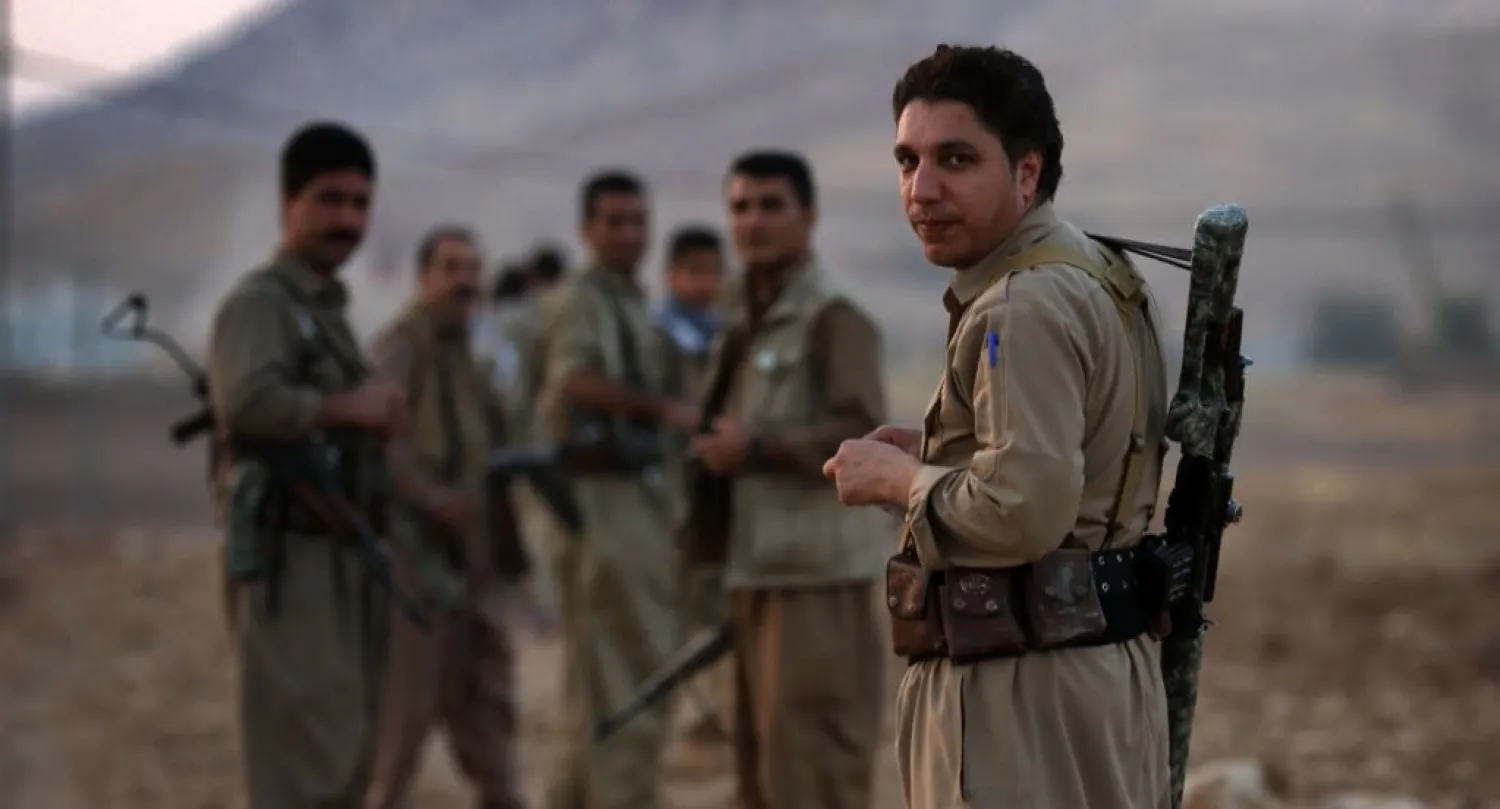Sixteen people were killed and dozens injured on Saturday in missile attacks launched by Tehran on bases of the Democratic Party of Iranian Kurdistan (PDKI) in the province of Koya, southern Erbil.
The party said a drone was flying above the PDKI’s headquarter where a meeting was taking place before it was attacked by Katyusha missiles.
Iranian media outlets broadcast footage of the missile launch, saying five surface-to-surface rockets were fired without identifying their types.
Medical sources said the bodies of 11 people and more than 40 wounded were removed from under the rubble.
Later, the same sources said they retrieved the bodies of 16 people and were expecting to find more.
Preliminary information said PDKI secretary general Mustafa Mawludi and his predecessor Khalid Azizi were injured in the attack.
The party accused militias of the Iran-backed Popular Mobilization Forces (PMF) in Iraq of providing logistic support to the Iranian forces, said local news outlets in the Iraqi Kurdistan Region.
The Kurdistan Regional Government (KRG) condemned the shelling and reiterated its opposition to Kurdish parties from Iran and Turkey using Kurdistan Region territory to launch attacks on neighboring countries.
Such activity is “not acceptable,” stated the KRG, “and it harms the stability and security of Kurdistan. We hope it is not repeated and that the Kurdistan Region's laws are respected. Kurdistan should not be used as a place to settle scores.”
Meanwhile, Iran announced on Saturday that it had hanged three Kurdish political prisoners after years spent in the Rajaei Shahr prison in Karaj, on the western outskirts of Tehran.
The execution of Loqman Moradi, Zanyar Moradi and Ramin Hossein Panahi took place despite calls by UN human rights special rapporteurs Javaid Rehman and Agnes Callamard, who said in a statement on September 7 that the men had not been given a fair trial.









